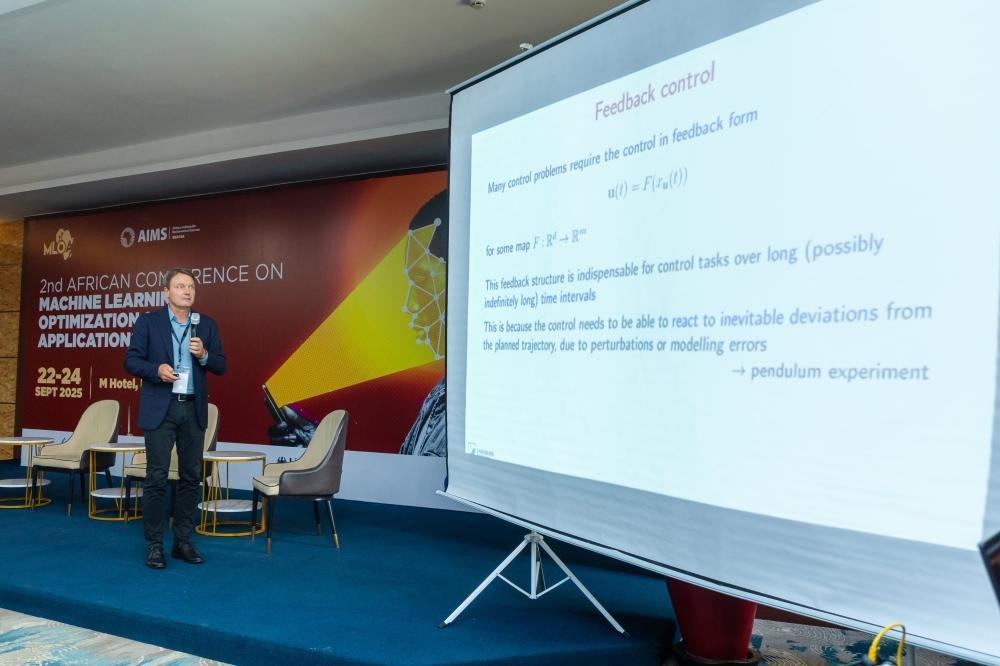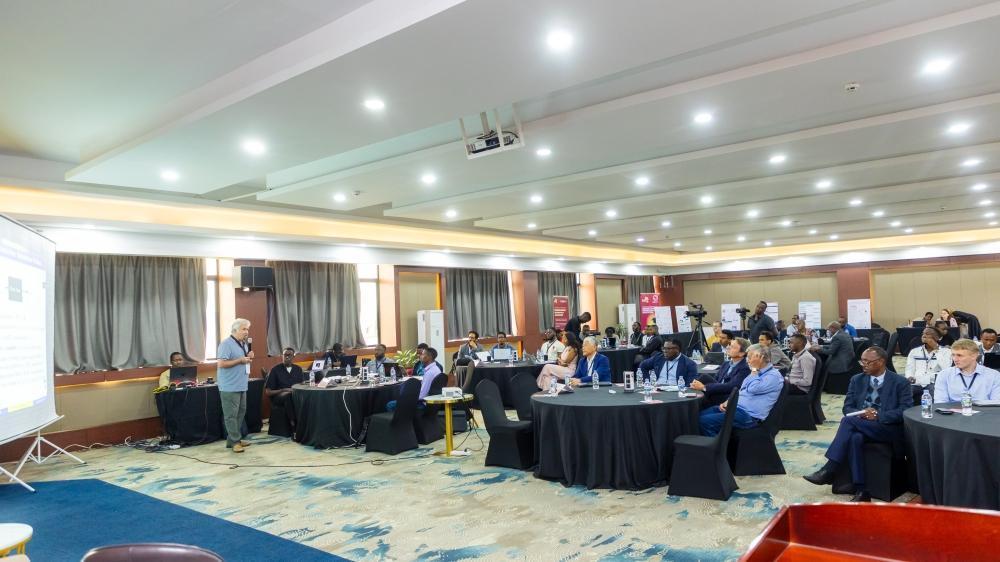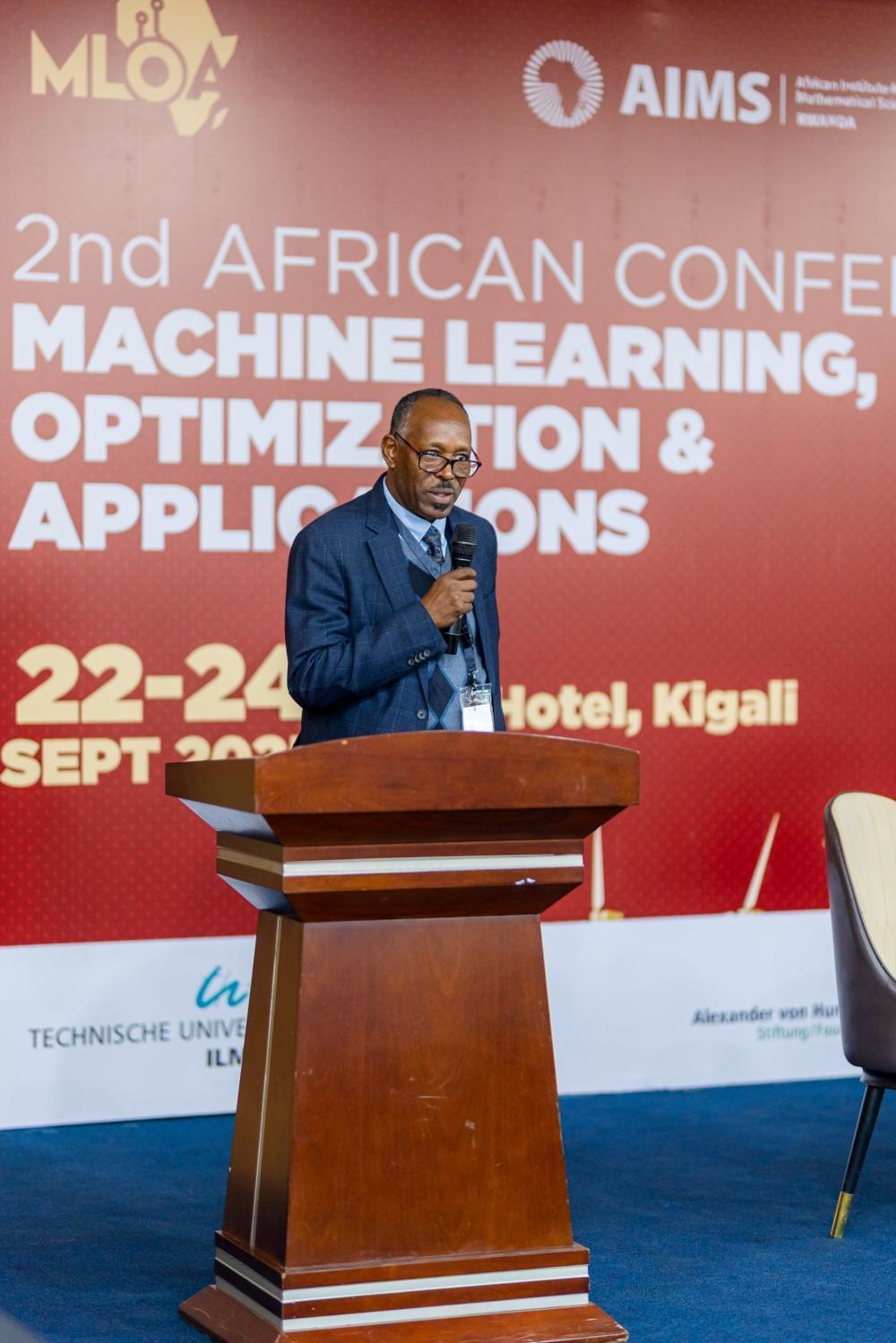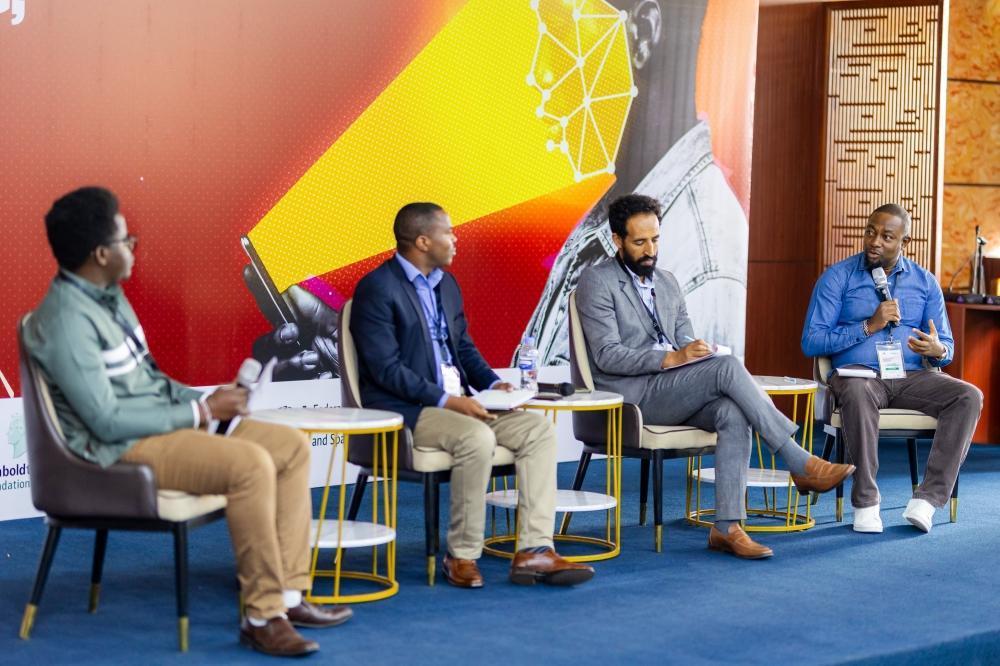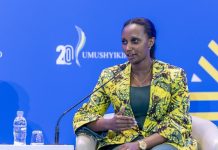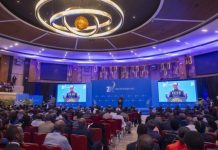Africa-Press – Rwanda. Rwanda must move beyond being a consumer of artificial intelligence (AI) technologies and start building its own customised solutions for critical sectors such as healthcare, agriculture, energy, and water management, experts said during a major scientific gathering in Kigali.
Speaking at the second African Conference on Machine Learning, Optimisation and Applications (MLOA) on September 23, Abebe Geletu, German Researcher Chair at AIMS Rwanda, emphasized that Africa risks being left behind if it relies solely on foreign-developed AI tools.
Delegates at the second African Conference on Machine Learning, Optimisation and Applications (MLOA) on September 23
“Most of today’s software and applications are AI-driven, but Africa should not just be a user,” Geletu said. “We need to train a generation that understands the foundations of machine learning so we can develop technology that addresses Africa’s unique challenges from equitable water distribution and energy storage to food conservation and security systems.”
Geletu said the conference, which brought together leading scientists from across the world, is helping Rwandan and African students and researchers gain direct exposure to world-class expertise.
“Our young scientists now have clear directions on which problems to tackle,” he said. “This knowledge will not only shape their research but also foster entrepreneurship by turning scientific insights into practical solutions for Africa.”
Professor Pu Li, Head of Computer Science and Automation at Germany’s Technische Universität Ilmenau, said a joint project with AIMS Rwanda is already producing tangible results. The project, Systems Optimisation for Sustainable Resources Utilisation, has developed models to optimise water supply systems, integrate renewable energy into microgrids, and improve food storage technologies.
“Our focus is on modelling, simulating, and optimising complex systems,” Prof. Li said. “By applying these techniques locally, African researchers can build robust, context-specific solutions rather than relying on imported software that may not suit regional needs.”
Experts highlighted that AI-driven research can also create opportunities for start-ups and innovation. Examples include solar-powered food storage automation, intelligent microgrid management, and embedded systems for healthcare and agriculture — all areas where Rwanda can lead if it invests in skills and research capacity.
“This is about creating real impact,” Geletu said. “Africa’s young scientists are now equipped to become leading researchers and entrepreneurs who can solve the continent’s pressing problems while contributing to global scientific progress.”
The second African Conference on Machine Learning, Optimisation and Applications (MLOA) on September 23
Panelists engage in a discussion at the second African Conference on Machine Learning, Optimisation and Applications (MLOA) on September 23
For More News And Analysis About Rwanda Follow Africa-Press

